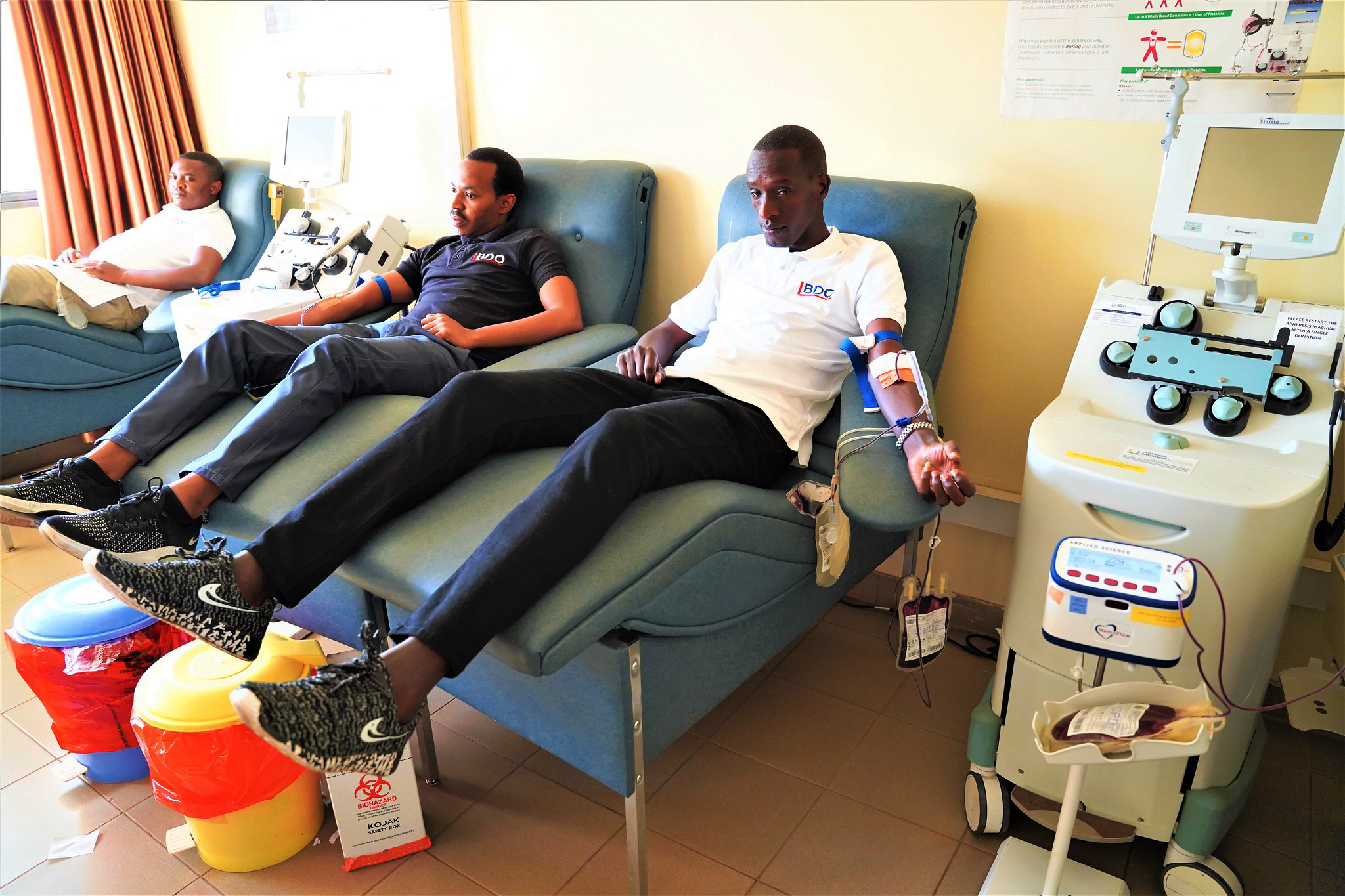

On June 14 every year, the global community marks World Blood Donor Day focusing on the gift of life from voluntary unpaid blood donors around the world.
This year’s theme; "donating blood is an act of solidarity. Join the effort and save lives,” saw the general public encouraged to become regular unpaid blood donors to save more lives.
The calls for blood drives noted that compared to other regions globally, the African Region sees a disproportionate number of conditions requiring donor blood, impacting as many as seven million patients every year.
Examples include haemorrhage associated with pregnancy and childbirth, severe anaemia due to malaria and malnutrition, bone marrow and inherited blood disorders, trauma and accidents, as well as man-made and natural disasters.
Locally, 12 units of blood are consumed every hour in Rwanda, in most cases by malaria patients, pregnant women with severe anaemia, mothers who had birth complications, cancer patients and people who had accidents.
Official records show that while voluntary unpaid blood donations dropped significantly across Africa, Rwanda has seen a rise in the supply for blood units in 2021 compared to the previous years.
This means that despite limited mobility and other challenges, blood donors in Rwanda have continued to donate blood and plasma to patients who need transfusion.
For instance, there was demand for 100,935 units of blood in 2020, and 93,993 units were supplied, which amounts to 93.12 percent.
In 2021, there was demand for 105,243 units of blood while 102,689 units were supplied, which amounts to 97.57 percent satisfaction in 78 hospitals.
Nevertheless, it doesn’t mean the remaining satisfaction percentage on supply was not taken care of, but rather that a patient received the blood component units on the following day, or they recovered without additional blood.
Going forward, renewed efforts are needed to keep on track positive developments such as the fact that there is no single patient who has died from an unmet blood transfusion demand in Rwandan hospitals since 2005.
Among ways this can be achieved is by continued awareness raising on the need for blood donation across the country to sensitize the public.
This will also include breaking myths and misperceptions that exist on blood donation. This will ensure that the gains made are not eroded as demand for blood grows.


